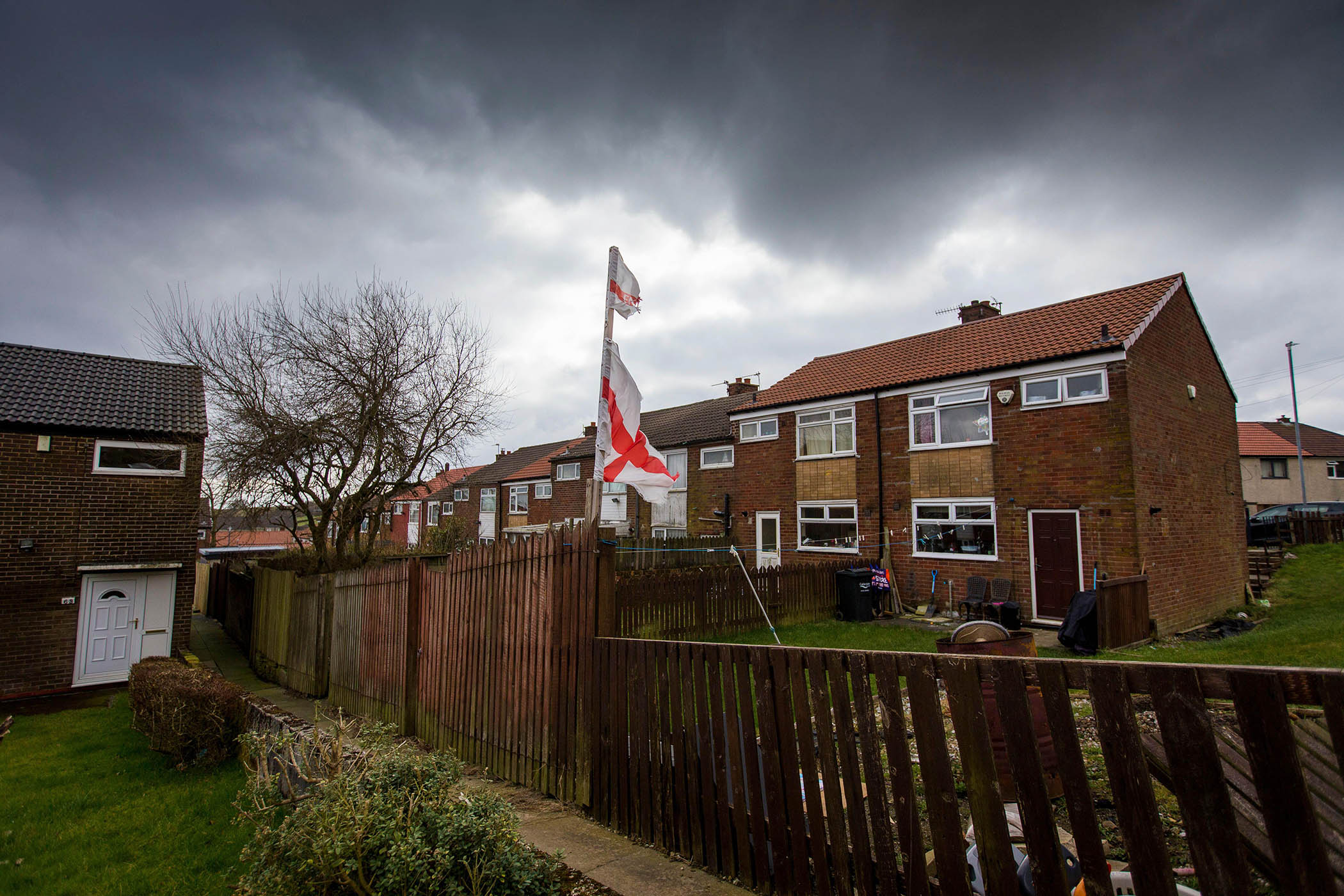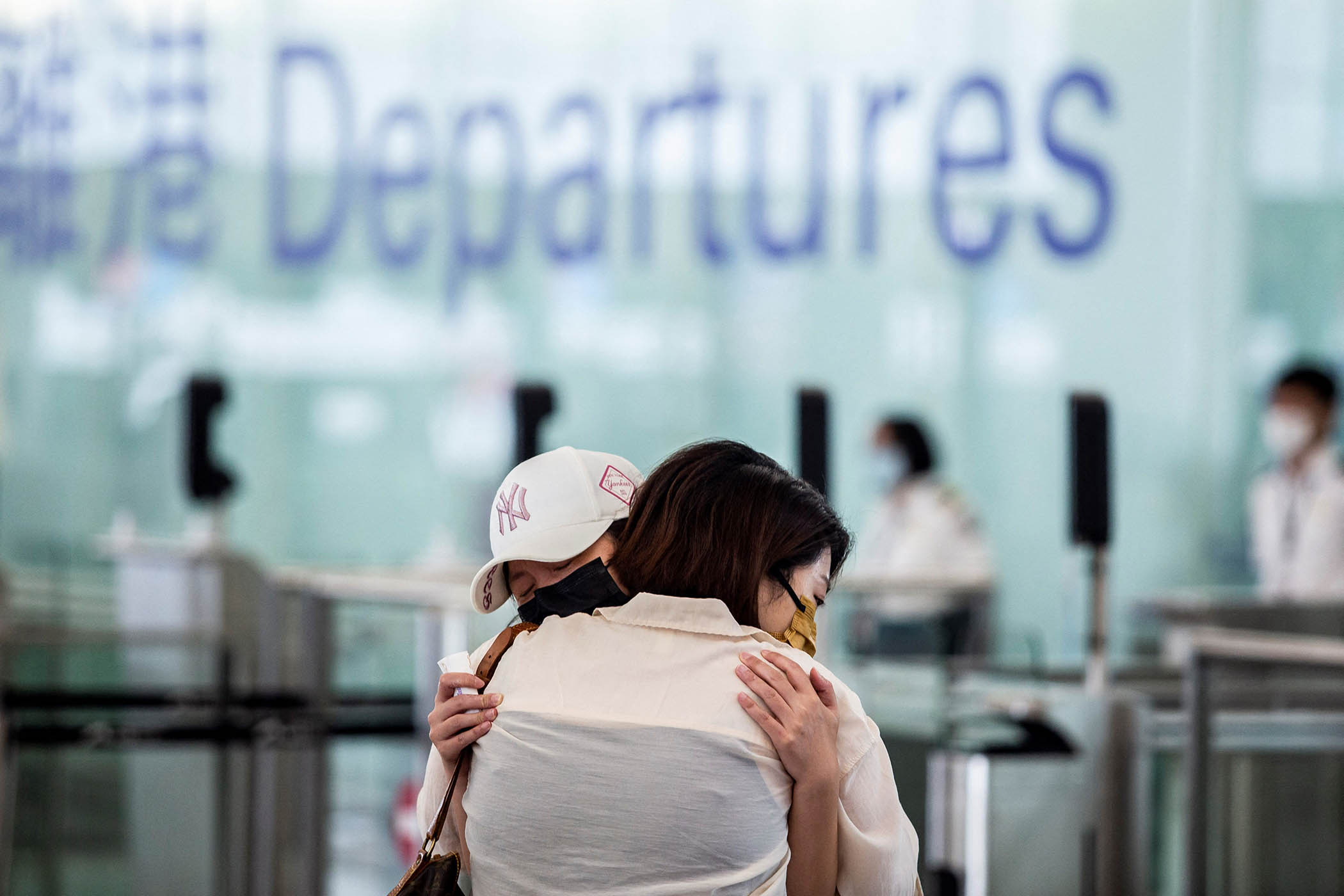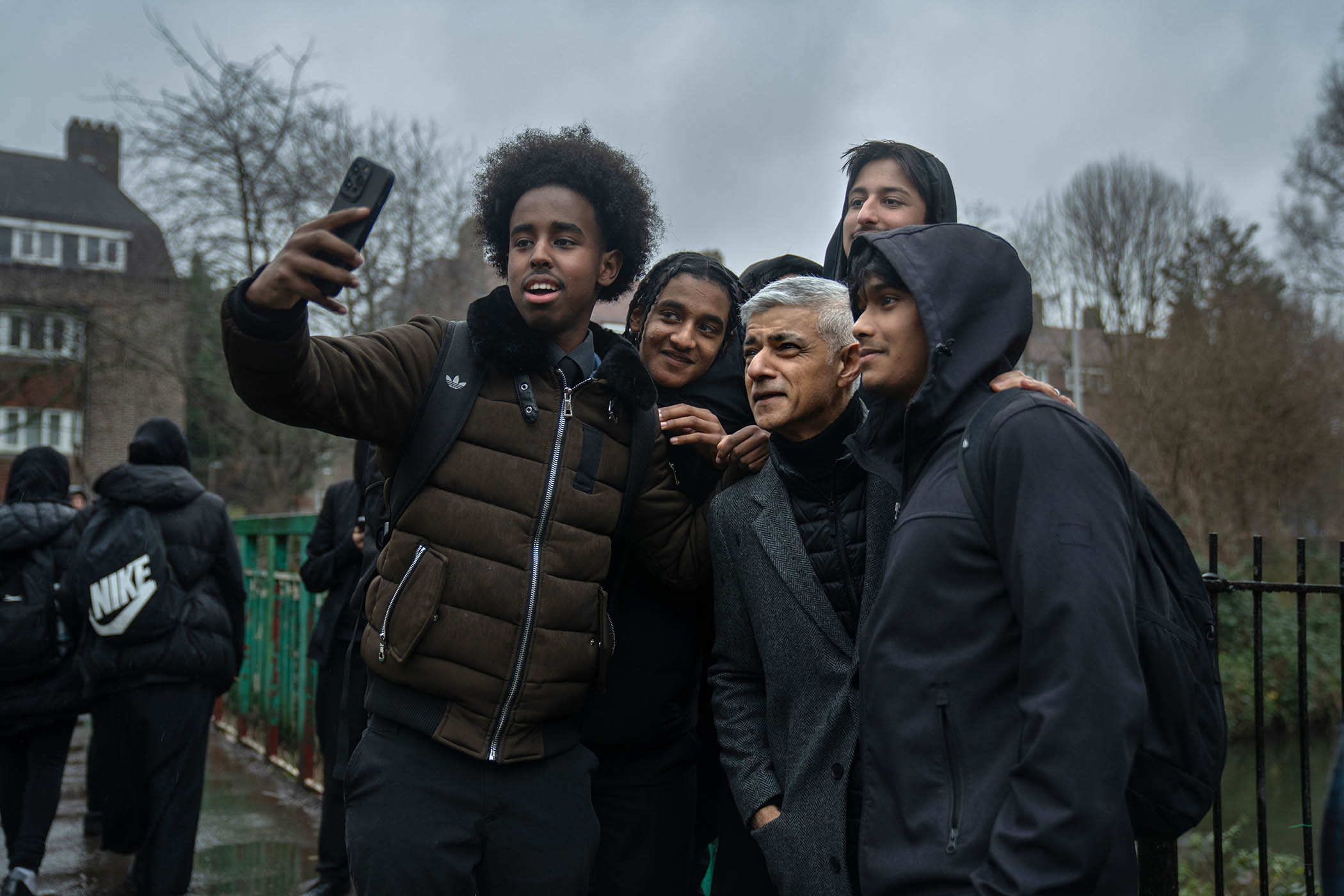Mixenden lies at the edge of Halifax, West Yorkshire, a working-class town, very white and very poor. I went there more than 20 years ago, making a film for Channel 4 about multiculturalism. A British National Party candidate, Adrian Marsden, had just been elected as local councillor.
It was the kind of place that, growing up in the 1970s and 80s, in what was then a ferociously racist Britain, I might have seen as “enemy territory”; somewhere you walked around with the hairs standing up on the back of your neck, always expecting to get into a ruck with racists. But Mixenden never felt like that. I never felt threatened, even when wandering around by myself.
“What there was in Mixenden,” I wrote, “was a sense of being abandoned by mainstream politics and politicians, as a result of which some… had embraced the British National Party, seemingly as the only way of giving voice to their grievances. What set the estate apart was not the intensity of its racism but the depth of its resentment.”
Twenty years on, that sense of resentment and betrayal, of a broken social contract, has become the national story. Many of those on Tommy Robinson’s Unite the Kingdom march last week would have come from places like Mixenden.
A week on, the debate still rages over whether it was a “far right” event. The answer depends partly on which way one was looking. If you were looking at the stage, you would have seen a global parade of bigots take to the microphone. Speakers such as Éric Zemmour, the French politician who thinks Marine Le Pen too timid; Eva Vlaardingerbroek, the Dutch activist who now describes herself, appropriating an epithet bestowed by critics, as the “shieldmaiden of the far right”; Valentina Gomez, a Republican from Texas, infamous for staging the mock execution of a migrant; Filip Dewinter, of the Flemish separatist Vlaams Belang party; as well as local pot-stirrers such as Katie Hopkins and Laurence Fox.
Most were driven by a visceral hatred of Muslims and migrants. Britain, Robinson told the crowd, is “being invaded”, “being raped” and, like “every single western nation”, faced with “an orchestrated, organised invasion and replacement of European citizens”.
Vlaardingerbroek claimed: “We are witnessing the rape, replacement and murder of our people.” Calling herself part of “Generation Remigration”, she demands the mass deportation of all those with migrant backgrounds, including citizens. “You have to get rid of Islam,” Dewinter told the rally. “Islam doesn’t belong to Europe. Islam doesn’t belong to the UK.”
“You either fight for your nation,” Gomez roared, “or you let all these rapist Muslims and corrupt politicians take over.” And: “If these rapists Muslims take over, they will not only rape your women, they will behead your sons, just like they did on 7 October in Israel.” Britain needed a leader who would “send all these rapist Muslims and dirty rags back to their sharia nations”.
And so on. It was a torrent of obsessive hatred, for which the label “far right” might seem generous.
Newsletters
Choose the newsletters you want to receive
View more
For information about how The Observer protects your data, read our Privacy Policy
Many had come to express not their bigotry but their sense of voicelessness
Many had come to express not their bigotry but their sense of voicelessness
Yet if we were to turn around and look not at the stage but across the marchers, that label might seem ill-fitting. Certainly, there were many racists among the crowd, many bigoted chants, and plenty who cheered on the basest invective from the stage. Many others, though, had come to the rally to express not their bigotry but their despair, both about the material deterioration of their lives, from housing to wages, and their sense of voicelessness. If there was one phrase that resonated with the marchers, it was one I had heard repeatedly in Mixenden: “No one listens to us.”
What the march illustrated was the way sections of the working class can be drawn to the far right not because they are hardcore racists but because most of the old political outlets for their discontent have eroded; and so they become attracted by the only campaigns that seem to express the same kind of anger they feel. It was a demonstration of the toxic melding of an inchoate form of popular discontent, the inability of the left to speak to working-class grievances, and the venomous malevolence of the far right that shapes so much of politics.
To drain that toxicity, we need to confront the far-right arguments about migrants and Muslims being responsible for working-class tribulations, while also addressing the grievances that provoke so many. Mainstream politicians do almost the opposite. They rhetorically condemn the far right yet appropriate many of its policies and tail it in demonising migrants, while failing to address the issues of wages, housing and the loss of dignity and belonging that pervades many working-class communities, often portraying many in those communities as bigots.
In Mixenden, I had gone for a drink with Bill, for decades a Labour Party activist and union convenor, a man steeped in working-class history. Among the books in his house were Tony Benn’s Diaries and Gordon Brown’s biography of the Red Clydeside MP, James Maxton.
Why was he supporting the BNP, I asked him. Because – and by now it’s a familiar phrase: “They listen to us. No one else does.” But they are racist, I protested. Many are fascist thugs. “The Labour party take our votes,” he responded, “but won’t do anything for us. No one will. They all just piss on us.”
Whether you call Bill racist is almost beside the point. While politicians continue to ignore working-class grievances while vilifying migrants, blaming them for working-class ills, there will continue to be many more like Bill.
Photograph by Windmill Image/Alamy



